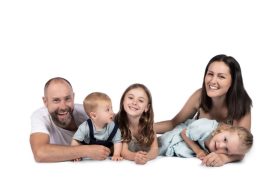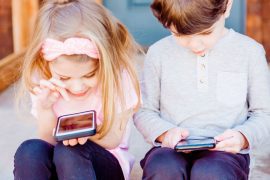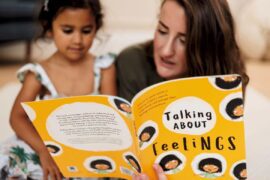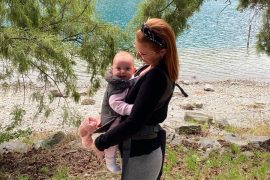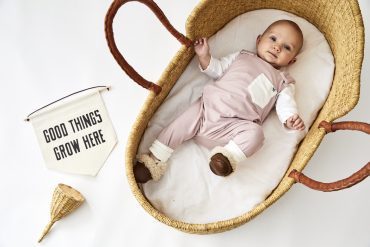As much as we ourselves need it, our children also need and deserve for us to do the big work of coming to peace with ourselves. Coming to peace with ourselves includes forgiving ourselves, and that’s easier said than done for most! It can be easier to feel bad towards ourselves than kind towards ourselves. Yet it’s our responsibility as parents to maintain a soft heart. The more we come to peace with ourselves and our whole range of feelings, including the messy ones like resentment, rage, jealousy and utter confusion, the closer we get to developing a kind, soft heart capable of true compassion towards our child and our partner. In developing a soft, kind-hearted feeling towards ourselves, we can then draw on that heart energy when our child needs our care and compassion. When we can speak from a soft kind heart, our child can see, feel and hear our care and compassion for them.
When we work to observe and notice the quality of connection that we’re giving to our child, we will know if we’re more open or more closed, more soft or more hardened. We can’t always open our hearts like flicking a switch, sometimes the heart can feel very heavy and sore, but it is very valuable to be mindful of this quality in our relationship with our child. When our heart isn’t open to our child on a particular day for whatever reasons, we can expect our child to be more clingy, more unsettled, perhaps more defiant or angry. Again, we may not be able to change our state as fast or as well as we’d like, but it is very helpful to be aware that this is why our child’s needs are extra high. And often our increased understanding of how our feeling towards our child affects them can afford us increased tolerance and patience towards our child’s difficulties.
For most of us, myself included, there’s a huge contrast between how we were parented and how we parent our children in the present. Because of this contrast, most of us carry two sets of conflicting older beliefs and newer beliefs about parenting. In challenging situations, parents often experience a battle between the older conditioned beliefs and the newer beliefs. Spurred by our older beliefs, we may respond to our child with thoughts such as: “He’s not going to get away with acting like that, he knows well that he shouldn’t act like that and he’s just being selfish and inconsiderate, he needs to understand that the world doesn’t revolve around him and that it’s time he made better choices. Being nice to him gets me nowhere.” Whereas, from our newer beliefs, we may respond to our child’s out of balance behaviour with thoughts such as: “He’s really stressed and he needs my help, not my criticism. He’s doing his best, but he can’t think straight when he’s feeling overwhelmed with frustration. He needs for me to become calm and reasonable, he needs to feel that I’m on his team and helping him face and resolve his problems rather than criticizing him and causing him to feel even more overwhelmed and stressed. He deserves to be spoken to respectfully and to feel supported before he can participate more cooperatively.”
When we find what it takes in us to really love our child unconditionally, even through conflict, even in the face of their rejection, this is when we really start to grow up and be the adult, this is what heals us, this is what repairs broken hearts.
Children can’t deal with our blocks, inhibitions, wounds or fears, they just know what they need, they just need what they need and are driven, despite their fears of rejection, to seek their needs from us. So, whether we think we can rise to the challenge or not, our children keep pushing us to show them love that is bigger than our pain and their pain, our inhibitions and their inhibitions. They keep pulling on our heart strings and challenging us to care, to hear, to listen, to empathize, to accept, to just love them no matter what, to keep opening our heart to them through it all, to keep repairing the heart connection again and again.
Being the hero is about finding the courage to love deeply and unconditionally, to keep returning back to opening our hearts every time we shut down and want to hide away in our smallness, even though we want to protect our sore places by putting up those walls and conveniently blaming others for not wanting our love or not trusting us. When our children fight us and push us away, they’re often protecting their sore places, but they do want and need our love, always, but they want the real thing, the clean love, the love without conditions; they need unconditional love. When we find what it takes in us to really love our child unconditionally, even through conflict, even in the face of their rejection, this is when we really start to grow up and be the adult, this is what heals us, this is what repairs broken hearts.
Our children literally resonate with us. They’re downloading our state all the time; our emotions, our beliefs, our values. Their stress rises with ours and comes down with ours. When we smile with them, play with them, laugh with them, kindly care for them, the sun shines brightly in their world and starts to melt the cold scared places inside them, their experience of life becomes full of fun, magic and happiness again.
Not only is it not selfish to care for your emotional needs, to find ways of reducing your stress, to access more support, more comfort, more kindness and empathy for your struggles, these are responsible mature proactive choices that bring more balance and support to you and hence your whole family system.
Genevieve Simperingham is a Psychosynthesis Counsellor, a certified Aware Parenting Instructor, parent educator, a blogger and public speaker. She’s been parenting with attachment principles from the beginning, her son is 21 and daughter 16. She runs the Peaceful Parent Institute in New Zealand and offers live and online events. Check out her website www.peacefulparent.com.


